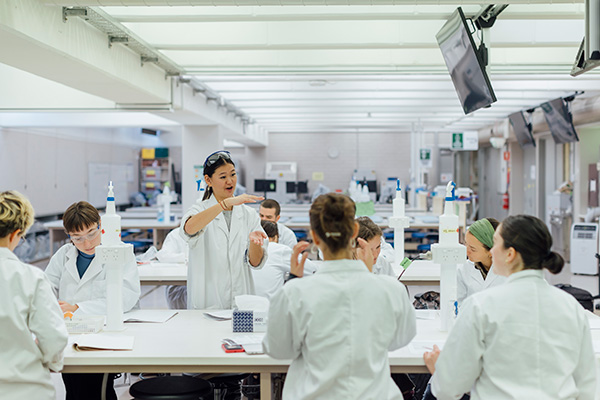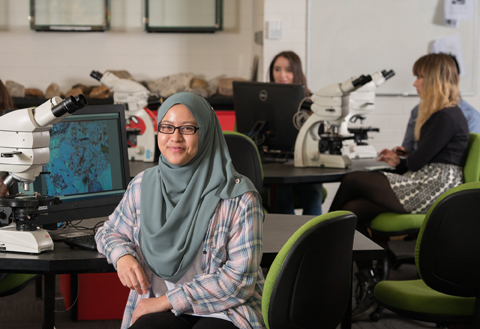Study with the School of Chemistry
Our broad range of accredited programs attract some of the best students nationally and internationally.

Why study chemistry?
With access to state-of-the-art laboratories and facilities, our students are immersed in a vibrant and welcoming learning environment that nurtures their passion for understanding the fundamental principles of matter and the intricate mechanisms governing chemical reactions.
The School of Chemistry encourages students to engage in interdisciplinary disciplines, and grow the skills required to address challenges of our complex world.
Study options
-
Undergraduate studies
Our world-renowned teaching staff offers undergraduate students the opportunity to explore chemistry through our Bachelor of Science.
-
Graduate studies
Graduate studies allow students to grow the skills and expertise needed to succeed in the field of chemistry. Choose from Master programs by coursework or explore our pathway opportunities.
-
Graduate research
Learn under the guidance of world-leading staff to pursue a career in research or academia in your area of interest.
Meet our students and alumni
We are committed to teaching and supporting the skills of students in their chosen career path. Meet our current students and alumni to hear about where chemistry has taken them.

Frequently asked questions
If you have more questions about chemistry and studying with us, please check our FAQs for more information.

Awards, prizes and scholarships
We are committed to recognising and supporting the academic achievements of students and offer some of the most generous scholarships in Australia.